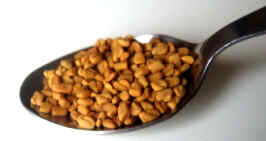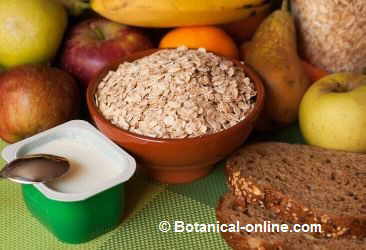Contents
FENUGREEK MEDICINAL PROPERTIES FOR CHOLESTEROL
Fenugreek, a seed for circulatory diseases
Fenugreek is a medicinal plant native to the Mediterranean region, which is used in the cuisine of the Asian countries like India, Thailand and China.
Its traditional culinary use covers its role in these regions but it also appears in Ayurveda and Chinese medicine.
Fenugreek is increasingly known in the West for its medicinal importance, as a supplement to prevent and treat cardiovascular diseases.
Fenugreek reduces “bad” cholesterol and increases levels of “good” cholesterol

Fenugreek supplements effects have been shown in numerous scientific studies. This property is due to the richness in antioxidant, anti-inflammatory, vasodilator and cholesterol-lowering components of this natural food.
Fenugreek chemicals with anti-cholesterol properties
Fenugreek contains at least 10 chemicals with cholesterol-lowering effects: trigonelline, saponins, beta-sitosterol, chrome, and flavonoids such as luteolin and routine:
Fiber (mucilage type and to a lesser amount, lignin) and saponins (diosgenin) of fenugreek capture dietary cholesterol and bile salts (high cholesterol) in the gut, reducing cholesterol absorption and promoting its removal.
Because of this effect, fenugreek may help lower “bad” cholesterol (LDL) and also prevent the formation of gallstones.
It has also been observed that fenugreek supplement, taken regularly, maintains or increases levels of “good” cholesterol (HDL).
Fenugreek reduces “bad” cholesterol (LDL) and increases the “good” cholesterol (HDL) in these patients.
Scientific studies also point to the activity of acid 4-hydroxy-isoleucine content in the seed, which lowers blood triglycerides. This observation can focus fenugreek supplement diets for obese individuals.
Fenugreek also excels in herbal medicine for diabetes mellitus type I and II.
Caution before taking Fenugreek
Fenugreek has a number of contraindications.
- Do not take fenugreek if you are on medication or are taking contraceptives.
- If you are diabetic, you can only follow this supplementation under medical supervision.
Before taking Fenugreek, consult contraindications, side effects and toxicity
Fenugreek dose
- Fenugreek flour (ground seeds): take before each meal, ½ teaspoon of seeds powder with a glass of water or milk. It can also be consumed as a condiment. Up to 25 grams per day (maximum allowed).
- Decoction: prepare a pulp with 1 tablespoon of fenugreek flour (15g.), 1 cup water, 1 teaspoon olive oil and 1 tablespoon honey or brown sugar. You can add a few seeds of anise or caraway seeds for flavoring.
- Infusion or tisane: 80100g bags of fenugreek. 1 to 3 infusions per day.
- Capsules: 1 capsule before each meal, with a glass of water or milk. Up to 3 capsules daily.
- Fenugreek extract: 1ml. (approx. 20 drops) of extract three times daily. Do not exceed daily 4ml.
*Related information:
Fenugreek medicinal properties
Fenugreek uses and preparations
![]() More medicinal properties and information on fenugreek.
More medicinal properties and information on fenugreek.








